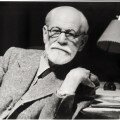 A few days ago I came across a question on an application form that really sparked my attention. The question was ‘If you could choose any person to have dinner with, who would you choose?’ and unlike the other questions on the sheet I wasn’t sure of my answer straight away. As with most people, there are many people that inspire me. To pick only one, was impossible.
A few days ago I came across a question on an application form that really sparked my attention. The question was ‘If you could choose any person to have dinner with, who would you choose?’ and unlike the other questions on the sheet I wasn’t sure of my answer straight away. As with most people, there are many people that inspire me. To pick only one, was impossible.
To find the answer I went back to my roots and I thought about what ‘success’ meant to me. To me it meant being the best you can be, but also resonating with the world around you. In the end I chose a figure that has been in my life from the very beginning, a writer called C.S. Lewis.
Whether you’re a budding author or not it is impossible to deny that this man was one of the most successful in his field. The depth in which his series’ go to provide an escape for his readers is unique and admirable, but the length of time that his work has remained celebrated is possibly one of the most phenomenal indications of his success as a storyteller.
His novels have globally sold in their millions, his stories have been adapted in their hundreds, for all kinds of media, and his name is one I believe will live on forever in his field. I’ll further discuss the life and lessons of C.S. Lewis below.
The Life & Times of C.S. Lewis
Clive Staples Lewis was born on the 29th November 1898 in Belfast to parents Albert James and Florence Augusta Lewis. Albert James was a solicitor and his wife, the daughter of a Priest. C.S. Lewis was their second son and both children were raised with a strict, religious and academically involved upbringing.
 Aged four, the family dog ‘Jacksie’ was killed by a car and from that moment on Lewis demanded that his family called him Jack. He was known by his closest friends and family by this name for the rest of his life.
Aged four, the family dog ‘Jacksie’ was killed by a car and from that moment on Lewis demanded that his family called him Jack. He was known by his closest friends and family by this name for the rest of his life.
This is just one event that shows Lewis’ young fascination and empathy with animals. He was particularly interested in animals that could talk, such as those in Beatrix Potter’s illustrated novels and spent most of his time, as a young boy, writing and drawing his own stories.
C.S. Lewis was privately schooled before being sent to Wynyward shortly after his mother’s death. It was around this time that his interest in talking animals stretched to legends and mythology. Both elements in which are prominent in his own literature.
When Wynyward closed, due to the headmaster’s psychiatric health, Lewis went on to attend Campbell College for a short time before being dismissed again for respiratory problems. This move was significant for Lewis because he was then moved to Malvern, a new high school where the young boy quickly abandoned his Christian faith.
However, Malvern College proved too competitive for Lewis’ tastes, so he returned to private study under his father’s old tutor and was awarded a scholarship at Oxford for his talents. But before he could attend Oxford however, Lewis was conscripted to fight in the First World War where he fought on the front line in Somme Valley. Lewis didn’t enjoy his period in the army and it was said that the experience only strengthened his growing distaste for Christianity.
 During the war he became close friends with soldier ‘Paddy’ Moore, so close in fact that the pair made a promise to each other that if one were to die, the other was to look after his family.
During the war he became close friends with soldier ‘Paddy’ Moore, so close in fact that the pair made a promise to each other that if one were to die, the other was to look after his family.
‘Paddy’ died on the frontline and for many years to follow Lewis oversaw that Paddy’s mother Jane was cared for.
The pair became so close during this time that Lewis often called her mother, a significant relationship for Lewis who’d lost his mother to cancer at an early age and wasn’t very close to his father.
After the war C.S. Lewis was finally allowed to return to his studies. It was at Oxford that Lewis’ interest in Christianity was relit by the debates he had with fellow colleague (and writer) J.R.R Tolkien (who you can read more about here). As a Christian Lewis served as a philosophy and English Literature tutor for many years and eventually became a member of the Church of England.
Lewis’ first novel, written with his new Christian influence, was called The Pilgrim’s Regress. Published in 1933, this book was poorly received by critics but praised by Oxford companions who encouraged Lewis to write more. Following this encouragement C.S. Lewis wrote and published the Cosmic Trilogy novels, novels that are said to have been inspired by his conversations with Tolkien.
On the outbreak of the Second World War, Lewis took in child evacuees and later tried to re-enter the military. His offer was rejected, but determined to make a contribution Lewis began to broadcast religious programmes to keep morale in the cities high instead.
 Towards the end of the war Lewis began writing the Chronicles of Narnia. The series eventually sold over 100 million copies worldwide and were later made into a collection of television, stage and cinema adaptations. It is in this series that we can, quite possibly, most see Lewis’ mythology and Christian influences coming through. In this sense they were proof that creating what you care about works.
Towards the end of the war Lewis began writing the Chronicles of Narnia. The series eventually sold over 100 million copies worldwide and were later made into a collection of television, stage and cinema adaptations. It is in this series that we can, quite possibly, most see Lewis’ mythology and Christian influences coming through. In this sense they were proof that creating what you care about works.
C.S. Lewis resigned on appointment to Cambridge University in 1954. Although this was the end of his career in a physical sense, by no means did C.S. Lewis give up extending himself as an individual, a thinker and a writer.
He wrote several novellas, public speeches, poems, essays and novels including Till We Have Faces and The Queen of Drum. None such texts were as popular as his Narnia series but everyone added to his prestigious title of being one of the most influential, Christian writers of all time.
Unfortunately for C.S. Lewis, his death on the 22nd November 1953 was heavily overshadowed by the assassination of JF Kennedy. But this did not stop C.S. Lewis’ works being held prestigiously as children’s classics as they still are to this day.
For generations children have been raised on C.S. Lewis’ stories and for generations adults have still enjoyed the stories he once told. In my eyes, if a creation can still stand strong and provide an escape for its buyers after so many generations of changes within society, it is a successful one.
Life Lessons from C.S. Lewis
Even in literature and art, no man who bothers about originality will ever be original: where as if you simply try to tell the truth (without caring two pence how often it has been told before) you will, nine times out of ten, become original without ever having noticed it. – C.S. Lewis
Teach What You Care About
 Only when C.S Lewis discovered Christianity did he start truly taking steps towards becoming a writer and this was because he found what he was born to write about.
Only when C.S Lewis discovered Christianity did he start truly taking steps towards becoming a writer and this was because he found what he was born to write about.
In this sense you should never feel like you have to create something because you think it will be popular or because it will make money.
But instead, you should always create because you want to create and because you care about the knowledge that you are sharing. I have never been an avid Christian. I don’t go to church, I don’t pray, and I don’t read the bible.
But from C.S. Lewis’ books – which you’ll notice as an adult contain many subtle references to Christianity – I learnt a lot about the values that C.S. Lewis had and the thoughts he wanted to share with his readers. By sharing the things that he cared about C.S. Lewis not only stayed more motivated to write, but the success meant much more to him.
He wasn’t just writing about a lion, a witch and a wardrobe. He was writing about the things that mattered to him; about god, good, evil and opportunity.
Discovering what you want to create and why is the most important step to take before sitting down and actually creating as it’s this step that will determine how long your creation captures the heart of the people. This is probably the most valuable lesson we can learn from the success of Lewis and his Narnia series, in particular.
Collaborate with Others
 C.S. Lewis’ associates encouraged C.S. Lewis to keep writing even when the going got rough and the reception was poor. If they hadn’t encouraged C.S. Lewis, perhaps ‘The Chronicles of Narnia’ wouldn’t have existed today.
C.S. Lewis’ associates encouraged C.S. Lewis to keep writing even when the going got rough and the reception was poor. If they hadn’t encouraged C.S. Lewis, perhaps ‘The Chronicles of Narnia’ wouldn’t have existed today.
And you may argue that it’s only one series of books and that the world wouldn’t be truly damaged. But think about how many potential writers were inspired by his novels, to write themselves. Think about how many children found faith or how many adults found an escape through his fiction.
Equally, it was Lewis’ talks with Tolkien that relit Lewis’ faith and inspired his science-fiction series of novels. Without this collaboration, C.S. Lewis may not ever have found out what he wanted to write or gathered the ideas that he did.
The point is that every creative collaboration is important, every role we play in the world has a knock on effect on the future and every opportunity is potential. And that’s the magic of working together to make the world a better place.
Be Open Minded
You don’t need me to tell you that creativity involves having an open mind and a flexible nature, but what’s easy to lose sight of is the fact that the process of creation needs you to show these traits in your daily life too.
 When J.R.R Tolkien argued to Lewis about the power of Christianity, Lewis didn’t just dismiss the idea because it didn’t match his own; even though many others would have.
When J.R.R Tolkien argued to Lewis about the power of Christianity, Lewis didn’t just dismiss the idea because it didn’t match his own; even though many others would have.
He instead recognised Tolkien’s perspective and thought about it. And by taking his time and thinking it through, he was able to come to decisions that changed his life forever.
If you want to create imaginative and unique products, you have to consider all points of view before you set your own in stone.
You also have to recognise that your decisions may change as you grow older and that the things you care about and spend your time doing now may change too
It’s okay to have firm beliefs and values, but if you want to change with the times and stay true to yourself, as C.S Lewis did, you have to be able to channel your unique ideas through your gift. It’s not easy, but that’s why not everyone gets the title of ‘legendary’ in their field as C.S. Lewis did.
Wrote by Aimee Hall – Part of the Lives & Lessons Series – Comment Below!




